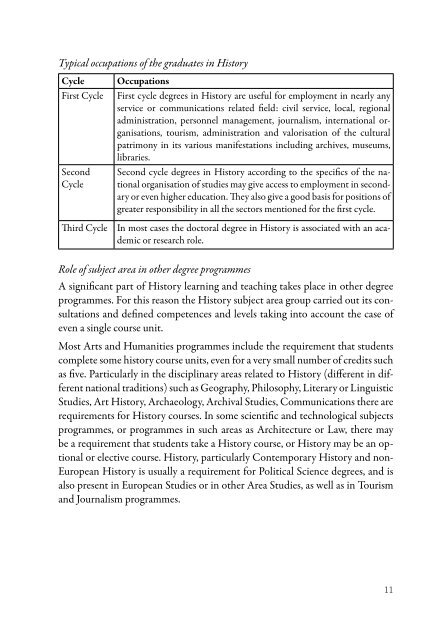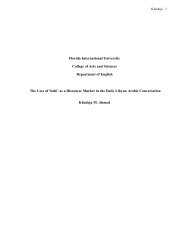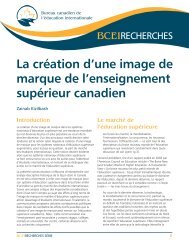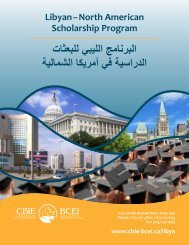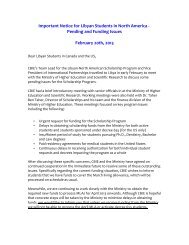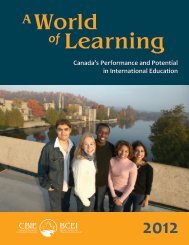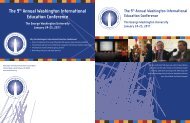Creating a New Historical Perspective: EU and the Wider World ...
Creating a New Historical Perspective: EU and the Wider World ...
Creating a New Historical Perspective: EU and the Wider World ...
Create successful ePaper yourself
Turn your PDF publications into a flip-book with our unique Google optimized e-Paper software.
Typical occupations of <strong>the</strong> graduates in History<br />
Cycle<br />
First Cycle<br />
Second<br />
Cycle<br />
Third Cycle<br />
Occupations<br />
First cycle degrees in History are useful for employment in nearly any<br />
service or communications related field: civil service, local, regional<br />
administration, personnel management, journalism, international organisations,<br />
tourism, administration <strong>and</strong> valorisation of <strong>the</strong> cultural<br />
patrimony in its various manifestations including archives, museums,<br />
libraries.<br />
Second cycle degrees in History according to <strong>the</strong> specifics of <strong>the</strong> national<br />
organisation of studies may give access to employment in secondary<br />
or even higher education. They also give a good basis for positions of<br />
greater responsibility in all <strong>the</strong> sectors mentioned for <strong>the</strong> first cycle.<br />
In most cases <strong>the</strong> doctoral degree in History is associated with an academic<br />
or research role.<br />
Role of subject area in o<strong>the</strong>r degree programmes<br />
A significant part of History learning <strong>and</strong> teaching takes place in o<strong>the</strong>r degree<br />
programmes. For this reason <strong>the</strong> History subject area group carried out its consultations<br />
<strong>and</strong> defined competences <strong>and</strong> levels taking into account <strong>the</strong> case of<br />
even a single course unit.<br />
Most Arts <strong>and</strong> Humanities programmes include <strong>the</strong> requirement that students<br />
complete some history course units, even for a very small number of credits such<br />
as five. Particularly in <strong>the</strong> disciplinary areas related to History (different in different<br />
national traditions) such as Geography, Philosophy, Literary or Linguistic<br />
Studies, Art History, Archaeology, Archival Studies, Communications <strong>the</strong>re are<br />
requirements for History courses. In some scientific <strong>and</strong> technological subjects<br />
programmes, or programmes in such areas as Architecture or Law, <strong>the</strong>re may<br />
be a requirement that students take a History course, or History may be an optional<br />
or elective course. History, particularly Contemporary History <strong>and</strong> non-<br />
European History is usually a requirement for Political Science degrees, <strong>and</strong> is<br />
also present in European Studies or in o<strong>the</strong>r Area Studies, as well as in Tourism<br />
<strong>and</strong> Journalism programmes.<br />
11


